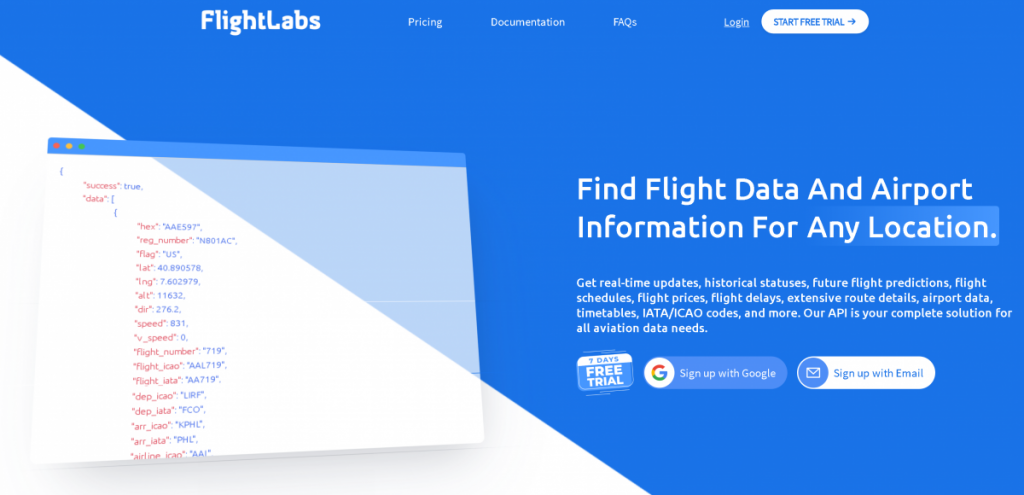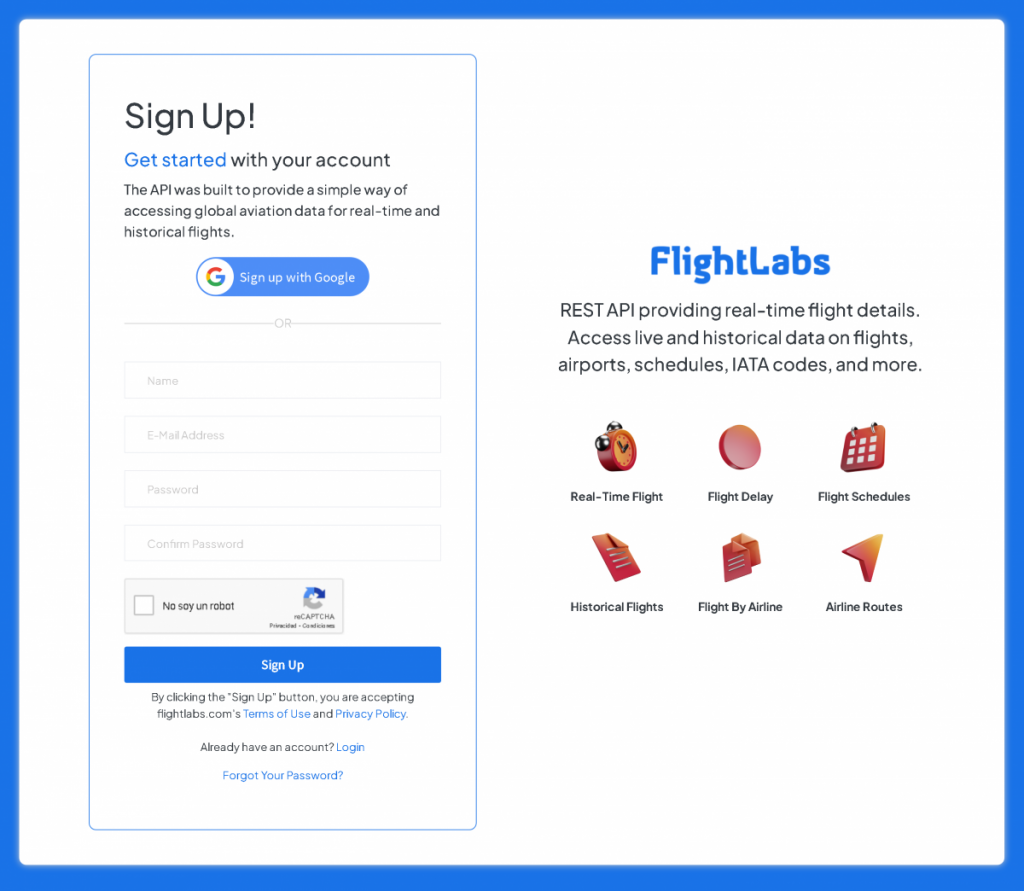In the dynamic realm of travel technology, real-time data is a game-changer. Integrating Real Time Flights APIs into travel applications can revolutionize the user experience, offering unparalleled convenience and efficiency. For travel businesses, leveraging such APIs is not just a trend but a strategic imperative. A Real Time Flights API can provide the backbone for delivering up-to-the-minute flight information, making them indispensable for modern travel apps.
This article delves into the workings and benefits of Real Time Flights APIs, highlighting the capabilities of FlightLabs, a leading provider in this space. We will also provide a practical guide for developers to get started with this powerful tool.
Understanding Real Time Flights APIs
Real Time Flights APIs are sophisticated interfaces that allow applications to fetch real-time flight data from various sources. They serve as a bridge between flight data providers and travel applications, ensuring that users receive the most current information available. These APIs encompass a range of functionalities, including flight schedules, delays, cancellations, gate changes, and more. By integrating these APIs, travel apps can offer users a seamless experience, where they can access real-time flight updates, book flights, and manage travel itineraries effortlessly.
The key components of a Real Time Flights API include endpoints for various data sets such as flight status, departure and arrival times, and historical flight data. These endpoints are design to deliver precise and timely information, which is crucial for travelers and travel service providers. Advanced features like predictive analytics and delay forecasts further enhance the utility of these APIs, enabling proactive management of travel plans.

Importance of Real Time Flights APIs in Developer Projects and Business
For developers, integrating Real Time Flights APIs into their projects opens up a world of possibilities. It enhances the functionality of travel apps, providing users with real-time information that is critical for making informed travel decisions. The seamless integration of these APIs can significantly improve the user experience, leading to higher user engagement and satisfaction.
From a business perspective, Real Time Flights APIs streamline operations for travel companies. They enable automated processes, reduce the need for manual intervention, and minimize the risk of errors. By offering real-time updates, travel companies can better manage customer expectations and improve service quality. Moreover, the ability to access historical flight data and predictive analytics allows businesses to optimize their operations and develop strategic insights.
Several case studies demonstrate the transformative impact of Real Time Flights APIs on travel businesses. For instance, airlines that have integrated these APIs into their customer service platforms have reported a significant reduction in call center volumes, as passengers can access real-time updates directly through the app. Similarly, travel agencies have enhanced their booking platforms, offering clients a more interactive and responsive service.
FlightLabs: The Best API for Developers

FlightLabs stands out as a premier provider of Real Time Flights APIs, offering a comprehensive suite of features designed to meet the needs of developers. With a robust infrastructure and a focus on reliability, FlightLabs delivers real-time flight data with high accuracy and minimal latency. Its API is easy to integrate, making it an ideal choice for developers looking to enhance their travel applications.
One of the standout features of FlightLabs is its Real Time Flight Endpoint, which provides live updates on flight status, departure and arrival times, and other critical information. The Flight Delay Endpoint offers predictive insights into potential delays, helping travelers and businesses plan accordingly. Additionally, the Historical Flights Endpoint allows access to past flight data, which can be valuable for trend analysis and reporting.
What sets FlightLabs apart is its commitment to developer support. The platform offers extensive documentation, sample code, and a responsive support team to assist developers at every stage of the integration process. This makes FlightLabs not only a powerful tool but also a developer-friendly option for real-time flight data integration.
Getting Started with FlightLabs
Getting started with FlightLabs is straightforward. The first step is to set up an account on the FlightLabs platform. Once registered, developers can access their API key, which is required to authenticate requests.

FlightLabs also offers SDKs for various programming languages, making it easier to integrate the API into different platforms. The comprehensive documentation provides detailed instructions and examples for utilizing all available endpoints.
https://www.youtube.com/watch?v=1pueN0P-UC8
Final Thoughts
The integration of Real Time Flights APIs into travel apps is revolutionizing the way travelers access information and manage their journeys. These APIs provide a wealth of real-time data that enhances user experience and optimizes business operations. Among the various providers, FlightLabs stands out for its reliability, comprehensive features, and developer-friendly approach.
As the travel industry continues to evolve, the demand for real-time data will only increase. APIs like FlightLabs are at the forefront of this transformation, offering the tools and support needed to create innovative and efficient travel solutions. By integrating Real Time Flights APIs, developers and businesses can stay ahead of the curve, delivering exceptional value to their users and customers.
Related Post: Top API Marketplaces For Developers: A Comprehensive Guide

